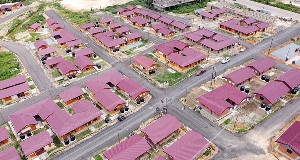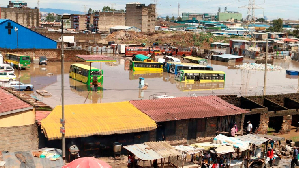Business News of Monday, 17 February 2003
Source: Public Agenda
Crisis Meeting On TELENOR Today
Representatives of Telekom Malaysia are in town for a crisis board meeting in Accra today (Monday), likely to be dominated by the events leading to the Management Services Contract under which Telenor, a subsidiary of the Norwegian telecommunications conglomerate came to manage Ghana Telecom.
Telekom Malaysia still have 30 per cent shares in Ghana Telecom (GT) and are seeking the services of the London Court of International Arbitration to offload the shares at $300m. Last December, Herbert Smith, counsel for Telekom Malaysia wrote to GT reminding the Ghanaian authorities about an amount of $7.3m being outstanding charges owed the Malaysian company for the management of GT under the 1997 agreement under which the Malaysians came to manage the Ghanaian company after buying 30 per cent shares at $38m.
The same solicitor had written in October in respect of the same outstanding bill in addition to a controversial sum of $50m Telekom Malaysia claimed was collected by the government in 2000 with a promise of off-loading 15 per cent of GT to bring Telekom Malaysia?s interest in GT to 45 per cent.
The last time officials of Telekom Malaysia were in town, Public Agenda learned that they walked out of a meeting with Communications Minister Felix Owusu Adjepong following the government?s decision not to renew the Management Service Agreement with the Malaysians and the decision to bring in Telenor and Management Consultants.
Two weeks ago, Public Agenda broke the news about the decision by Owusu-Agyapong to hand GT to Telenor to manage under a very strange contractual agreement. Under the agreement, Telenor will earn a minimum of $150,000 a month, an equivalent of two times the wages and other emoluments of the entire Ghanaian workerforce of 3,900.
?The management fee shall be four (4) per cent (before interest and tax) so however, that the actual fee payable should not be below US$150,000 per month, according to the agreement. In addition, Telenor officials would be provided with accommodation with swimming pool facilities in a first class suburb. They are also to benefit from free cars and unlimited supply of fuel paid for by the Ghanaian telephone user.
Under Clause 2 Sub-section One of the appendix:
- ?A success Fee shall be payable to TMP (Telenor) when performance exceeds targets for key performance indicators provided in the Business Plan by at least 10 per cent in any financial year."
- ?A default payment shall be payable by TMP when performance falls below the targets for key performance indicators provided in the Business Plan by at least 10 per cent in any financial year except where it is demonstrated that the lack of performance was not due to the control of management.?
The revelation that the government of Ghana paid $600,000 for the Business Plan has not sat down well with observers in the telecommunication industry. Justifying the $600,000 charge in an advertisement published in almost all Ghanaian papers, Telenor stated thus: ?The objectives and deliverables of the business plan were entailed in a Memorandum of Understanding signed by the parties on 4 July 2002.
In this business plan TMP was required to demonstrate how the objectives of the government of Ghana could be met. Should TMP in the business plan fail to demonstrate this, the government of Ghana would not enter the Management Service Agreement. In such case the business plan remains the property of the government of Ghana.?
According to Telenor, the business plan submitted on 4 October covers a period of five years and sets out targets including the fixing of 400,000 lines by the end of 2005, ?adequate and stable cellular coverage in all regional and district capitals, internet connection to all secondary schools and Teacher Training Colleges within three years, high speed data transmission capacity servicing both public and private customers and the introduction of systems and procedures of fraud detection and prevention.?










